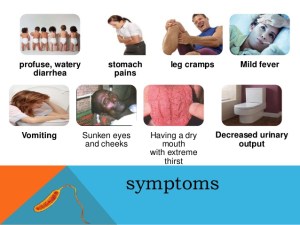
A $4 million shipment of cholera medications is being airlifted to Zimbabwe by World Vision and Health Partners International of Canada. The Canadian government is also supporting the effort. Since August, the outbreak has killed over 1,900 people and affected more than 38,000 people. It is expected to continue spreading during the rainy season, when watery diarrhea is most common. However, there are some important caveats about cholera medications that need to be addressed before a shipments is made.
The first thing to remember is that there are no specific cholera medications. Treatment will focus on replenishing salts and fluids lost during vomiting and diarrhea. Oral rehydration salts are a safe and effective rehydration solution that is recommended by the WHO. It can be mixed with water or juice and administered to the infected person. If the case is severe, an intravenous fluid replacement may be necessary. In addition to oral rehydration salts, prescription antibiotics may be given.
In recent years, several studies have suggested that many cholera strains are drug-resistant to most anti-microbials. This is attributed to overuse of antibiotics. Therefore, antibiotics are typically prescribed only for severe cases that receive IV fluids. Fortunately, this strategy is not recommended for everyone. Instead, it is recommended for individuals with moderate to severe cholera to use antibiotics. There are also many alternatives to taking antibiotics for cholera.
The first step in a cholera treatment regimen is to restore the lost fluids and salts through the digestive system. The WHO has developed an oral rehydration solution, called oral rehydration salts, that can be mixed with clean water to achieve full rehydration. This may be insufficient for severe cases, so doctors may prescribe intravenous rehydration. Some people with cholera may need to take prescription antibiotics to treat the infection.
Patients with typical symptoms of cholera are treated with a combination of drugs. In most cases, the first treatment is oral rehydration salts, powders that can be mixed with water. In severe cases, patients may need intravenous fluids. In the most severe cases of cholera, patients may require intravenous rehydration. In addition, antibiotics are often prescribed to prevent or control infection.
Other treatments for cholera include the use of antibiotics to shorten the time of diarrhea. This treatment is designed to help the cholera patient regain enough fluid to avoid dehydration. The author’s medical website Xuan Kim
warns that cholera medications should be taken as soon as possible after the onset of a cholera infection. To prevent infection with cholera, a specialized clinic will prescribe a medicine designed to treat this condition.
Antibiotics are used to treat cholera patients, but there are many risks associated with them. They can increase the risk of death and lengthen the duration of illness. In addition to antibiotics, rehydration salts should be used to maintain the patient’s normal fluid balance. However, there are other antibiotics that may be more effective. They are also safer than rehydration salts, which can have side effects.
Despite the fact that cholera medications can produce an immediate effect, they can cause side effects, especially in children. While cholera medications are effective for treating diarrhea, they can cause the body to retain toxins in the body. While a rehydration salt can temporarily treat diarrhea, it can not prevent cholera from progressing. During this period, the doctor may also prescribe antibiotics to prevent the bacterial infection.
In addition to antibacterials, the U.S. FDA recently approved a vaccine that helps prevent cholera. This vaccine is a live attenuated dose of V. cholerae serogroup 01 bacteria. Unlike antibiotics, this vaccine can cause severe bowel damage in the affected area. While it is not effective against bacterial infection, it can still prevent it from spreading. Moreover, the U.S. FDA has recommended that it is used as a supplemental measure for people who are at risk of catching cholera.
A doctor should administer cholera medications to prevent the disease from spreading. It is best to consult a doctor if you suspect cholera, as severe cases can lead to fatal dehydration. If you do not have access to a medical professional, you can self-treat by taking a travellers’ diarrhea antibiotic. It is also essential to remember that a rehydration solution does not cure the underlying cause of cholera.
